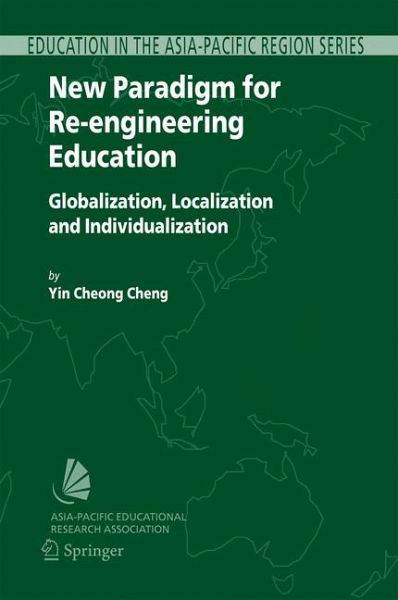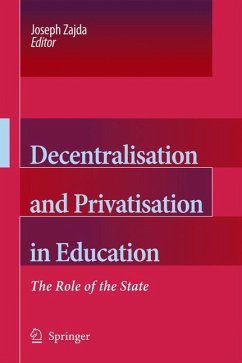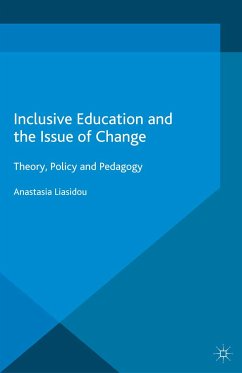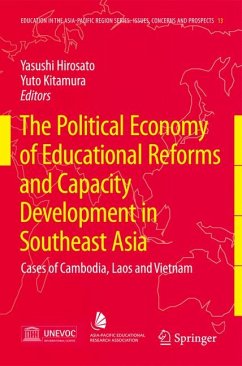
New Paradigm for Re-engineering Education (eBook, PDF)
Globalization, Localization and Individualization
Versandkostenfrei!
Sofort per Download lieferbar
160,95 €
inkl. MwSt.
Weitere Ausgaben:

PAYBACK Punkte
80 °P sammeln!
In response to the challenges of globalization and local development, educational reforms are inevitably becoming one of the major trends in the Asia-Pacific Region or other parts of the world. Based on the most recent research and international observations, this book aims to present a new paradigm including various new concepts, frameworks and theories for reengineering education.This book has 21 chapters in three sections. Section I "New Paradigm of Educational Reform" containing eight chapters, illustrates the new paradigm and frameworks of reengineering education, fostering human developm...
In response to the challenges of globalization and local development, educational reforms are inevitably becoming one of the major trends in the Asia-Pacific Region or other parts of the world. Based on the most recent research and international observations, this book aims to present a new paradigm including various new concepts, frameworks and theories for reengineering education.
This book has 21 chapters in three sections. Section I "New Paradigm of Educational Reform" containing eight chapters, illustrates the new paradigm and frameworks of reengineering education, fostering human development and analysing reform policies and also discusses the trends and challenges of educational reforms in the Asia-Pacific Region.
Section II "New Paradigm of Educational Leadership" with five chapters aims to elaborate how the nature, role and practice of school leadership can be transformed towards a new paradigm and respond to the three waves of education reforms.
Section III "Reengineering School Management for Effectiveness" with eight chapters aims to provide various practical frameworks for reengineering school management processes and implementing changes in school practices.
This book has 21 chapters in three sections. Section I "New Paradigm of Educational Reform" containing eight chapters, illustrates the new paradigm and frameworks of reengineering education, fostering human development and analysing reform policies and also discusses the trends and challenges of educational reforms in the Asia-Pacific Region.
Section II "New Paradigm of Educational Leadership" with five chapters aims to elaborate how the nature, role and practice of school leadership can be transformed towards a new paradigm and respond to the three waves of education reforms.
Section III "Reengineering School Management for Effectiveness" with eight chapters aims to provide various practical frameworks for reengineering school management processes and implementing changes in school practices.
Dieser Download kann aus rechtlichen Gründen nur mit Rechnungsadresse in A, B, BG, CY, CZ, D, DK, EW, E, FIN, F, GR, HR, H, IRL, I, LT, L, LR, M, NL, PL, P, R, S, SLO, SK ausgeliefert werden.













